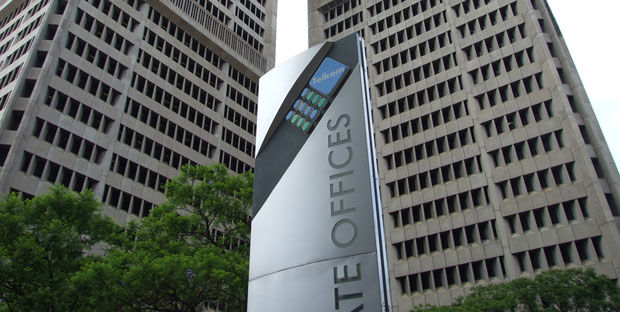
The Competition Tribunal has found Telkom guilty of abusing its dominance in the telecommunications market between 1999 and 2004. The company stood accused of abusing its dominance by charging excessive prices, refusing access to an essential facility and engaging in price discrimination thereby making its downstream rivals less competitive.
The whopping R449m fine amounts to 5% of Telkom’s market capitalisation of R9bn — or two and a half times the telco’s operating profit of R179m for the financial year ended 31 March 2012.
No wonder the tribunal has allowed Telkom to pay half the fine, or R224,5m, within six months and the other half the fine within twelve months after that.
Telkom can count itself lucky, however, as it could have faced a penalty of as much as 10% of its 2003 turnover, which would be R3,5bn. But a fine of that magnitude, representing more than a third of the its market capitalisation, would have been very damaging to Telkom.
The fine is further bad news for Telkom, after a series of blows this year. Its share price has dropped by more than 40% since February and cabinet’s decision to veto the sale of 20% of its equity to Korea’s KT Corp left it in a difficult position.
This has led to commentators predicting that Telkom’s financial position could “deteriorate perilously in a short space of time”.
Now Telkom has been fined R449m and still has to face a further case before the Competition Tribunal involving allegations of similar conduct that took place during the introduction of new technology in 2009. Those familiar with that case argue it is even stronger than the case upon which the tribunal pronounced on Tuesday.
A statement released by the tribunal alongside its judgment stated that it concluded that Telkom “leveraged its upstream monopoly in the facilities market to advantage its own subsidiary in the competitive value added network market”.
“Telkom’s conduct caused harm to both competitors and consumers alike and impeded competition and innovation in the dynamic Vans [value-added network services] market,” the tribunal found. “Instead of competing on the merits, Telkom had devised a strategy claiming that the independent Vans were conducting business illegally.
“Through this strategy, which involved the freezing of its competitors’ networks, Telkom impeded the growth of its competitors and retarded innovation in the market place. While Telkom bullied it its downstream competitors into line, it exploited, to its advantage, the very alleged grey area in the regulatory framework by integrating voice and data and bypassing the regulator’s requirement of separate accounting for PSTS and Vans services,” the tribunal judgment said.
The case took seven years and numerous legal challenges before it was heard by the tribunal, finally made it to the tribunal in October last year. The complaint was lodged with the Competition Commission by 21 entities, which included the SA Vans Association, the Internet Service Providers’ Association and 19 other value added network service providers.
By February 2004, the commission had completed its investigation and referred its case against Telkom to the tribunal. However, Telkom decided to challenge the commission’s jurisdiction in the supreme court of appeal, a legal move that resulted in a five-year delay to the tribunal hearing, but which was ultimately lost by Telkom.
Some subsequent legal challenges, followed based on the commission’s decisions to amends its papers, which have since been resolved and the case finally reached the tribunal.
Attempts to contact Telkom for comment were unsuccessful. — (c) 2012 Mail & Guardian
- Visit the Mail & Guardian Online, the smart news source




